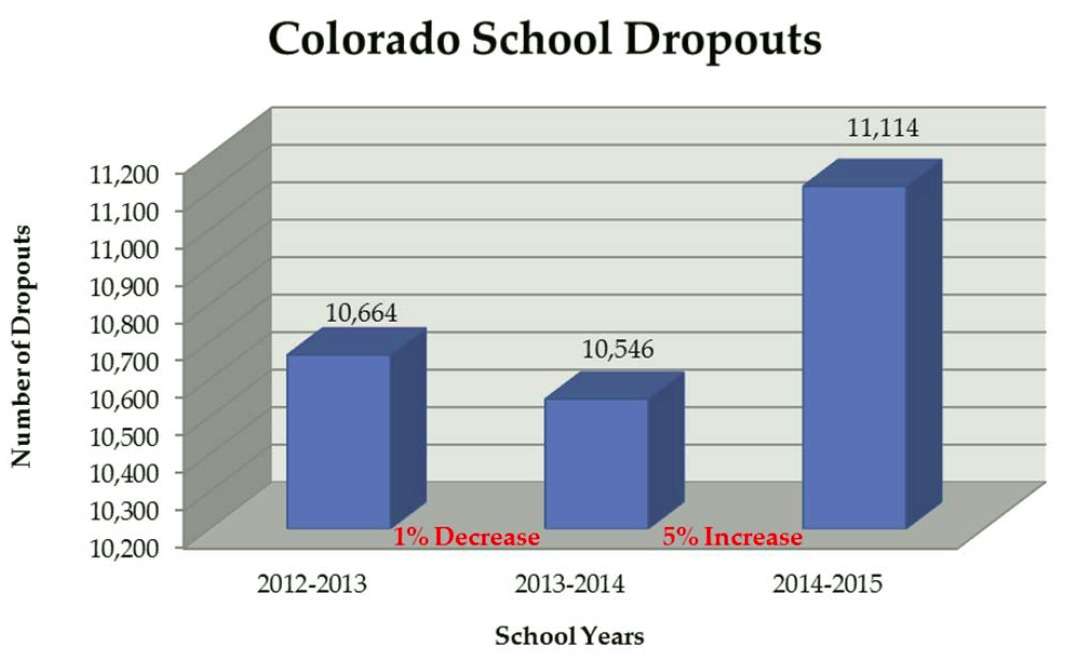Dishonest Government Report Assumes Marijuana Legalization Has No Benefits
The Rocky Mountain High Intensity Drug Trafficking Area issues another indictment disguised as an objective assessment.

The latest report on marijuana legalization in Colorado from the Rocky Mountain High Intensity Drug Trafficking Area (RMHIDTA) includes a column chart that seems to show a dramatic increase in "school dropouts" after state-licensed stores began selling cannabis to recreational consumers. The actual change was about 5 percent (from 10,546 to 11,114), but the chart makes it look like dropouts more than doubled because the Y axis begins at 10,200. As I explain in my latest Forbes column, the tricky chart illustrates RMHIDTA's desperation to show that legalization has been a disaster:
During a debate while running for re-election in 2014, Colorado Gov. John Hickenlooper was asked whether voters in his state had been "reckless" when they approved marijuana legalization two years earlier. "To a certain extent you could say it was reckless," he replied.
Last May, after repeatedly saying he would reverse legalization if he had "a magic wand," Hickenlooper told the Los Angeles Times, "If I had that magic wand now, I don't know if I would wave it. It's beginning to look like it might work."
See if you can guess which Hickenlooper quote appears in the latest report on marijuana legalization in Colorado from the drug warriors at the Rocky Mountain High Intensity Drug Trafficking Area (RMHIDTA). It's not much of a puzzle. Since suppressing the use of marijuana and other illegal drugs is RMHIDTA's mission, its reports on legalization are indictments masquerading as objective assessments. The same organization that last year falsely claimed public support for legalization had declined in Colorado this year portrays a governor who sounds cautiously optimistic about legalization as unambiguously against it.
The report's treatment of Hickenlooper is of a piece with its one-sided approach, which focuses exclusively on the negative consequences of legalization and exaggerates what we know about them. RMHIDTA likes to present dramatic, seemingly scientific charts that make legalization look like a big mistake. The difficulties of interpreting the data presented in the charts are usually relegated to a footnote, assuming they are mentioned at all.
